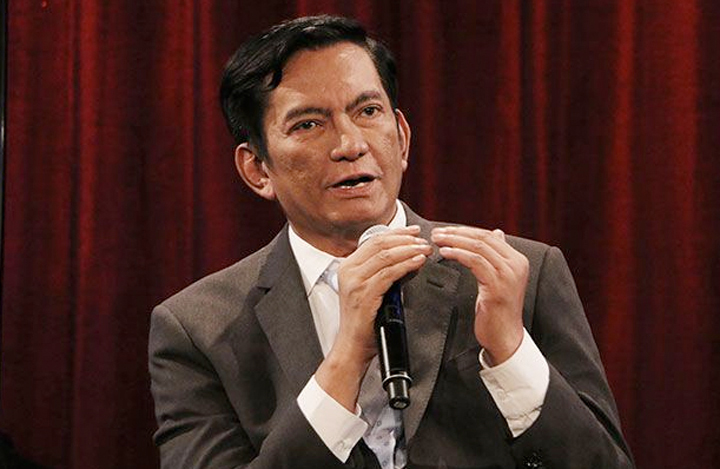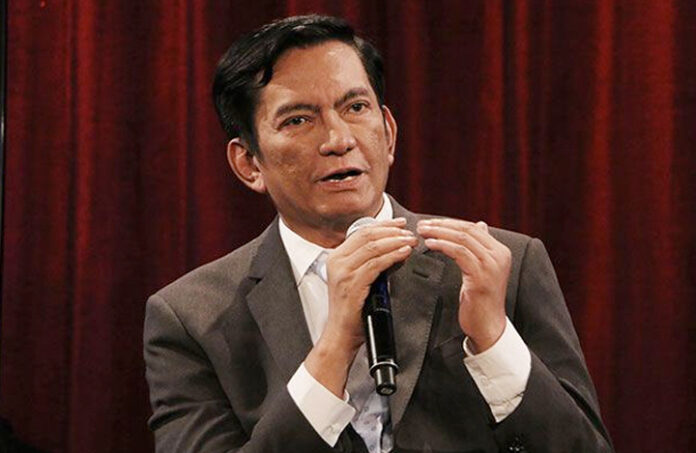
PENDING “corrective legislation,” the Department of Finance (DOF) and the Bureau of Internal Revenue (BIR) have agreed to suspend the implementation of Revenue Regulation 9-2021, which imposed 12-percent value-added tax (VAT) on certain exporter transactions previously taxed at zero percent.
House Committee on Ways and Means Chairman Joey Sarte Salceda announced this on Wednesday, after his committee held a briefing also on Wednesday with several agencies and stakeholders amid exporters’ concerns that the said rule could “cripple industry.”
“The DOF agreed today [Wednesday] to suspend RR 9-2021 pending new legislation that will correct the rule from the Tax Reform for Acceleration and Inclusion [TRAIN],” Salceda said.
RR 9-2021 was issued pursuant to the provisions of Republic Act (RA) 10963 or the Tax Reform and Acceleration and Inclusion Act (TRAIN) (Sections 106(A)(2)(a) and 108(B) of the Tax Code of 1997, as amended). This provides that certain transactions previously considered zero-rated shall be subject to 12-percent VAT upon satisfaction of two conditions: (1) The successful establishment and implementation of an enhanced VAT refund system, and that (2) All pending VAT refund claims as of December 31, 2017 shall be fully paid in cash by December 31, 2019.
However, Section 5 of Rule 18 of the recently signed implementing rules and regulations (IRR) for fiscal incentives under the Corporate Recovery and Tax Incentives for Enterprises (CREATE) Act provides that VAT zero-rating on local purchases of registered business enterprises (RBEs) may still apply, provided such locally purchased goods and services are directly and exclusively used in the registered project or activity of the RBE during the period of registration of the registered project/activity of the enterprise.
However, some quarters said the DOF’s remarks were “vague” owing to Secretary Dominguez’s apparent caution in replying to reporters’ questions.
Asked if the review being done may be considered a deferment of the RR, Dominguez said this was “technically correct” given the implementation of the tax.
“Regulations were issued at the end of June. VAT returns are quarterly. So if we start implementing CREATE this quarter July, it’s technically deferred to this quarter and returns are due 25th day after the end of the third quarter,” Dominguez said.
Meanwhile, Dominguez told reporters on Wednesday that the review of Revenue Resolution (RR) 9-2021 imposing a 12-percent value-added tax on goods and services may be completed by the end of the month.
The new RR will slap a 12-percent value-added tax on the sales of certain goods and services that were previously subjected to zero-percent VAT.
With the decision to suspend, Salceda said the following transactions will revert to their zero-rated status:
- Sale of raw materials or packaging materials to a non-resident buyer for delivery to a local export-oriented enterprise;
- Sale of raw materials or packaging materials to an export-oriented enterprise whose export sales exceed 70 percent of total annual production;
- Those considered export sales under Executive Order (EO) 226, or the Omnibus Investment Code of 1987, and other special laws (Section 106 (A) (2) (a) (5) of the Tax Code, as amended);
- Processing, manufacturing, or repacking goods for other persons doing business outside the Philippines, which goods are subsequently exported; and
- Services performed by subcontractors and/or contractors in processing, converting, or manufacturing goods for an enterprise whose export sales exceed 70 percent of total annual production.
Scrap altogether—Peza
Meanwhile, the Philippine Economic Zone Authority (Peza) still wants the BIR to scrap the new tax regulation for exports altogether.
“We’ll await for the—hopefully—total repeal of the VAT RR inserted in the CREATE IRR, to be assured not just of the deferment but continuity of the zero VAT incentives provided to separate customs territory of Peza law,” Peza Director General Charito Plaza told the BusinessMirror on Wednesday.
She said the same perks are also being offered to other countries’ economic zones and free port zones, making the local industry competitive.
Earlier, Plaza stressed that the implementation of the RR is an additional burden to the registered business enterprises.
Implement CREATE
According to Salceda, the DOF will implement the provision of the CREATE Law, which allows exporters to enjoy VAT zero rating on local purchases of goods and services directly and exclusively used in its registered project or activity.
“CREATE hopes to ease the operations of exporters, enhance the country’s competitiveness, and encourage sourcing of materials from local suppliers. That’s the spirit of the legislation. That’s why it insists on the zero-rating for local inputs, on top of enhanced deductions for them,” he explained.
“This decision is very crucial. Manufacturing is only beginning to pick up this year, out of last year’s closures and work suspension. It will allow the recovery momentum of the sector to continue,” Salceda said.
‘Corrective legislation’
Meanwhile, Salceda said he will continue to work with BIR and DOF to write “corrective legislation” to address small exporter concerns on the refund system and on audits.
“I thank Secretary Dominguez for the decision they made today. It satisfied stakeholder concerns and their commitment to draft corrective legislation with me is a productive step forward,” Salceda said.
“The DOF says one issue with the audit system, that forces them to audit everyone who seeks a refund, is that the Commission on Audit is also very strict with the refund system. So, my proposal is to relax the rules a bit for small de minimis claims, since it’s really not worth the time of tax administration,” Salceda said. He said a de minimis system will unburden small exporters who are less likely to have the resources to comply with lengthy administrative procedures.
“This practice is in parallel with Section 423 of the CMTA [Customs Modernization and Tariff Act], which provides that no duties and taxes shall be collected on goods with freight onboard or free carrier value of P10,000.00 or below,” he added.
“That practice of risk-based auditing is already the norm in most advanced tax jurisdictions. You go to Japan or Singapore to purchase some goods as a tourist, and at the airport, you can get your VAT refund over the counter. Ideally, that’s a system you want here as well,” the lawmaker said.
With Cai U. Ordinario
Read full article on BusinessMirror



